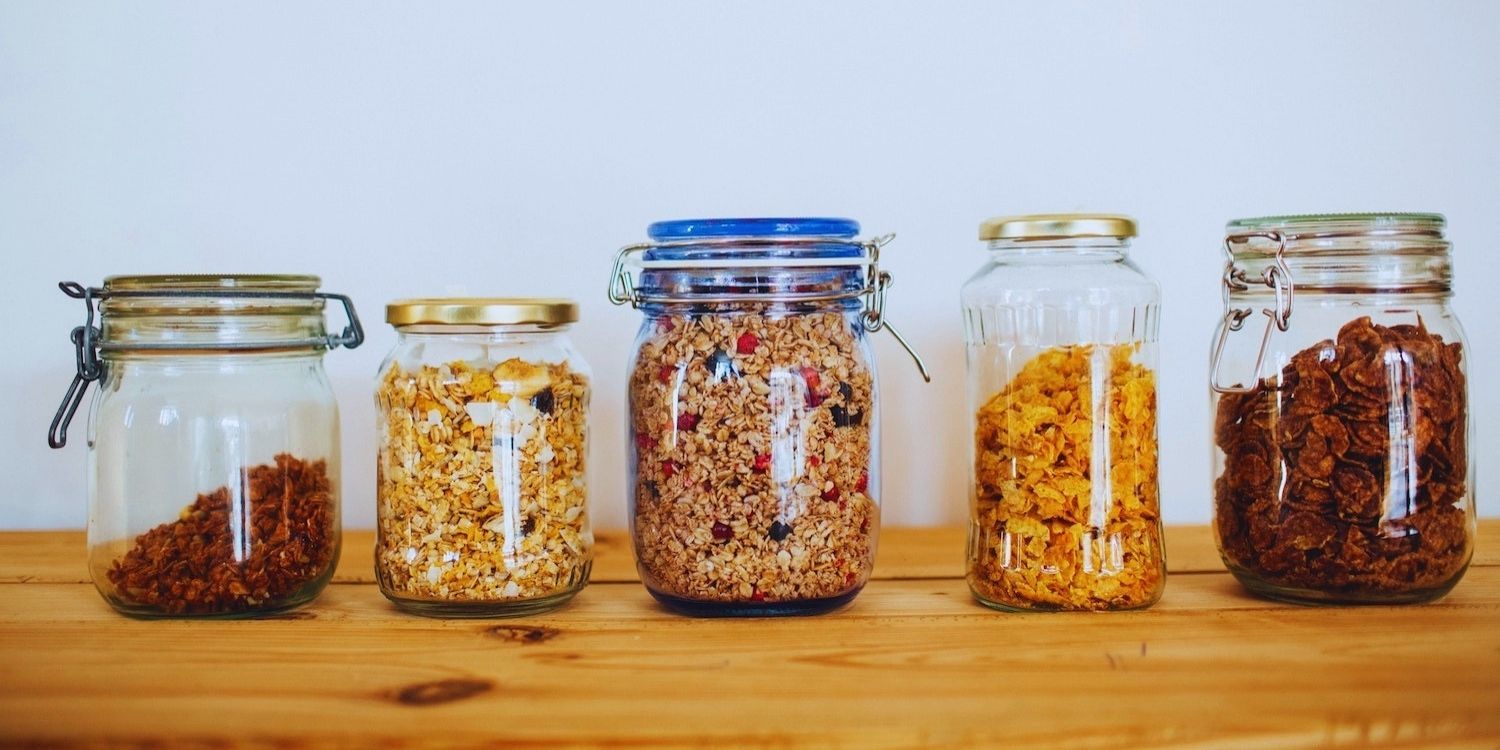Zero-Waste living: what is it, and why is it important?
Zero-waste living has become a popular environmental aspiration. Many approaches to zero-waste living exist, and individuals are turning to them for various reasons; individuals from diverse backgrounds, inspirations, motivators, household sizes, and ages.
Zero-waste is a lifestyle choice that aims to minimize harmful environmental impacts by generating less waste. The lifestyle strongly correlates with minimalism: a way of life that aims to keep personal possessions at a minimum; only purchasing items that are of essential value, or can be used for a variety of purposes. It is often used as a way to save money, space, and personal time; as fewer things equate to less mess and maintenance, which equates to less time spent cleaning and decluttering.
In combination, minimalism and zero-waste living continuously audit what ways waste is generated, to arrive at solutions to stop or drastically reduce them. Only essential, reusable, upcycled, and carefully crafted items are used and consumed in this lifestyle. While zero-waste living presents itself as an impossible task, thousands of people continue to prove otherwise. Even so, if millions of people practiced zero-waste living imperfectly for the right reasons, the benefits would be significant.
The importance of zero-waste living is becoming more and more obvious. It creates awareness and conversations surrounding environmental degradation, climate change, social justice, and stems wider than simply throwing fewer things away. The true aim of zero waste is not to just keep waste out of landfills, but rather to redesign our entire cycle of resource extraction, consumption, and waste management so no resources are wasted at any point along the way. This concept directly challenges the systems and habits currently in place worldwide.
"The importance of zero-waste living is becoming more and more obvious. It creates awareness and conversations surrounding environmental degradation, climate change, social justice, and stems wider than simply throwing fewer things away."
Zero-waste living confronts waste of all types: food waste, electronic waste, textile waste, plastic waste, and more. According to the Environmental Protection Agency (EPA) the average American produces about 4.4 pounds of combined trash a day. Annually, this translated to 1,606 pounds of trash per person. If only one person commits to reducing the amount of trash created for one year, it can save thousands of pounds of waste from landfills; proving that one person can make a difference.
Waste in landfills contributes directly to climate change and various pollution as it decomposes. Landfills emit various greenhouse gases, especially carbon dioxide, which has been shown to support and accelerate climate change. In addition, EPA estimates that 14% of human-caused methane is caused by landfills, making it the third-largest human-caused methane source globally. For these and many other reasons, it is important to reduce the amount of waste disposed of in landfills, as well as advocate for better waste management solutions.

Suggestions from the EPA support zero-waste living as a mitigation method for reducing waste in landfills and even combating climate change. Specific methods mentioned by the EPA include source reduction and composting: two major components of zero-waste living.
Source reduction, “is designing products to reduce the amount of waste that will later need to be thrown away and also to make the resulting waste less toxic.” For those living zero-waste, this means choosing products and companies who consider the environmental effects of their products and operations.

While composting, “involves collecting organic waste, such as food scraps and yard trimmings, and storing it under conditions designed to help it break down naturally. This resulting compost can then be used as a natural fertilizer.” A large part of zero-waste living is diverting food waste in some capacity outside of landfills. This makes composting a favorable choice for those in both rural and urban settings. The importance and relevance of composting and diverting food waste is essential and pressing, as food waste accounts for 22% of all municipal solid waste (MSW) residing in landfills.
Zero-waste living comes with its challenges, and the success of a zero-waste lifestyle depends significantly on where you live, your climate, and what helpful options you have available to you. For example, if your municipality offers curbside composting and recycling programs. However, it is important to realize that not being able to perform a zero-waste lifestyle perfectly should not discourage one from doing what they can, with what they have, to achieve a lesser environmental impact.
The benefits of the lifestyle are worth the initial confusion, commitments to habit breaking, and research.
10 Benefits of Living a Zero-Waste (Or Low-Waste) Lifestyle
1. Environmental Impact
Transitioning to a zero (or low) waste lifestyle is an excellent method to minimizing your carbon footprint and impact on the planet.
2. Cost Savings
While initial investments in reusable products and adjustments can be more than your traditional products, they are made to withstand time and save you money in the long term. One zero-waster, Kathryn Kellogg, estimates that her zero-waste lifestyle saved her $18,000 in her first two years.
3. Conscious Shopping
Zero-waste living requires you to ask yourself more questions before, during, and after shopping. Questions like: do I really need this? Could I get this secondhand? Could I find a more sustainable option? The mindset shift when going zero-waste protects your new lifestyle and wallet.
4. Less Chemical Exposure
Plastics and plastic derivatives are highly discouraged in a zero-waste lifestyle: even if you reuse them. This is due to their BPA compounds and endocrine-disrupting additives which have been linked to neurological issues, hormone dysfunction, and cancers. A zero-waste lifestyle limits your exposure to toxins as it promotes more recyclable items like glass and metals, as well as biodegradable materials.
5. Economic Support
Choosing a zero-waste lifestyle helps support the economy and create jobs. On average, “zero waste creates 10 times more jobs through reducing, reusing, and recycling than through trash disposal. More jobs are created in rental, repairing, reusing, and sharing businesses.”
6. Healthier Lifestyle
Zero-waste limits your exposure not only to chemicals but also to processed and packaged foods. It promotes a healthier diet and relationship with food.
7. Community
Since lifestyles like minimalism and zero-waste are so new in our modern society, many people find comfort in joining groups and online communities to discuss their new lifestyles. Like-minded people in these spaces are just as eager as you to develop new zero-waste strategies, brainstorm, and share their experiences.
8. Setting and Example
It is inevitable the people in your life will take notice of your zero-waste lifestyle. It will promote conversations and chances to educate others about the importance of the lifestyle, and how they, too, can become involved.
9. Higher Quality Items
Transitioning to a zero-waste lifestyle might mean that items you do decide to purchase are higher in quality and designed to last the tests of time. These items will quickly pay themselves off over time, especially sustainable clothing, appliances, and home goods.

10. Self-Growth
Trying anything new is an exciting process that allows you to better understand who you are, what you struggle with, and what you excel at. Beginning a zero-waste journey is no different. You will be surprised at how easy some transitions are, and shocked at why others may be more challenging. It is a journey that requires patience and a desire to do it for the right reasons.
Many who desire to transition to a zero-waste lifestyle are unsure of where to start. Follow along for our zero-waste series where we take you on a journey through popular areas of your home and current lifestyle to advise on the best ways to get started, and products that will make your new lifestyle more efficient and enjoyable.
Resources
- Municipal Solid Waste | Wastes | US EPA
- Basic Information about Landfill Gas | Landfill Methane Outreach Program (LMOP) | US EPA
- 16 Surprising Benefits Of Going Zero Waste - Almost Zero Waste
- Saving Money On Going Zero Waste: Tips From A Financial Planner - Zero Waste Lifestyle System
- How Much You Can Save By Going Zero Waste | Money
- 16 Surprising Benefits Of Going Zero Waste - Almost Zero Waste
- Jobs & Economic Impact | Eco-Cycle Solutions Hub (ecocyclesolutionshub.org)






